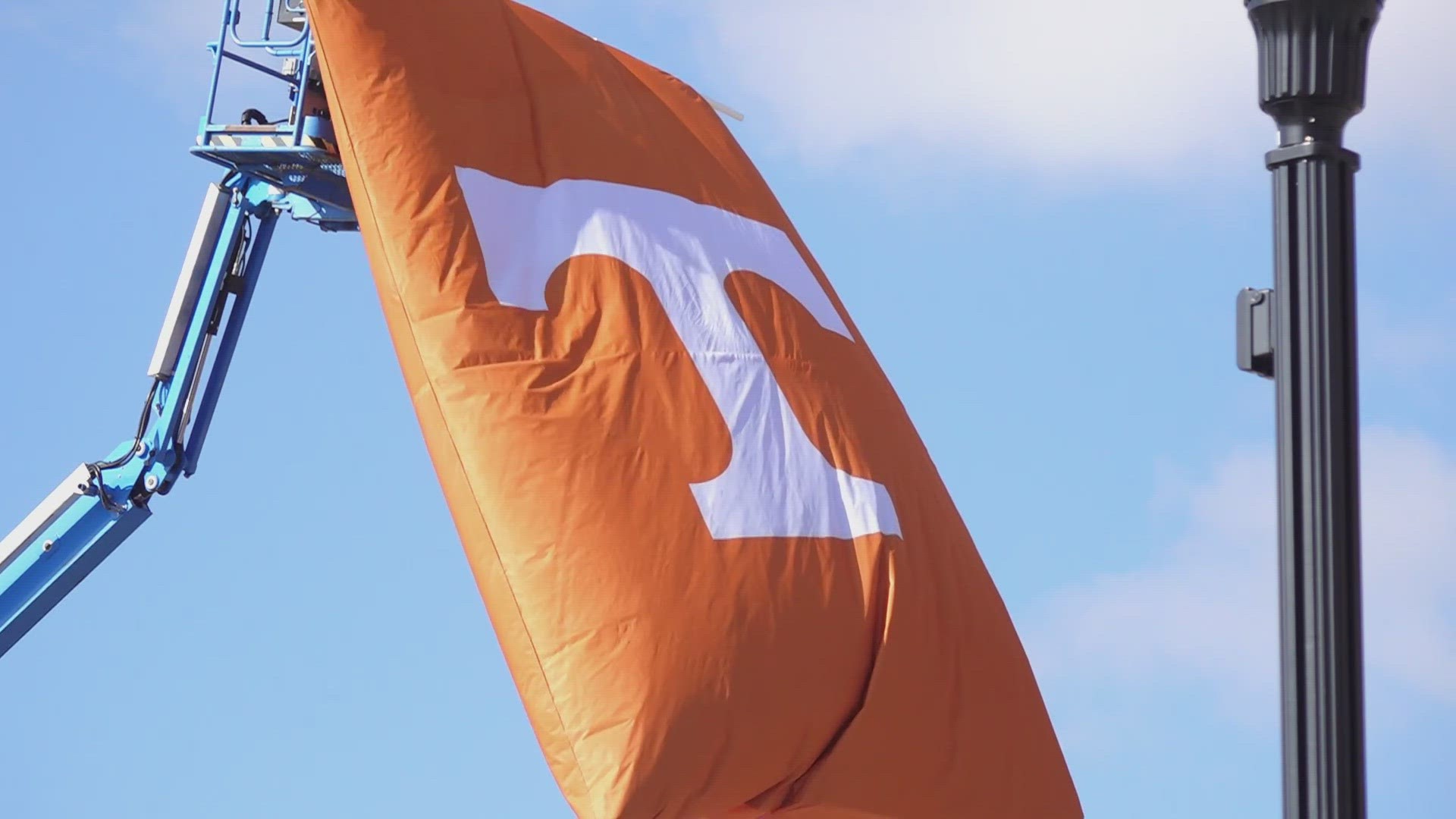GREENEVILLE, Tenn. — Virginia, Tennessee and the NCAA argued a case Tuesday morning surrounding the NCAA's enforcement of NIL rules before U.S. District Court Judge Clifton L. Corker in Greeneville.
The outcome, both sides said, would have national implications on the regulation of college athletics.
Outside the courthouse, there was no question where East Tennesseans stood on the battle between UT and the NCAA on NIL. Someone hoisted a Big Orange Power T flag outside the courthouse Tuesday, and it flew high to make sure no one forgot where the battle was being fought.


Corker said he'd file a written ruling "in short order" on the states' request for what's called a temporary injunction that would suspend the NCAA's enforcement of NIL enforcements now under debate.
Under NCAA guidance, college athletes are allowed to negotiate Name, Image, Likeness, or NIL, deals once they sign with a university, but they're not allowed to negotiate or discuss deals before. Attorneys for Tennessee and Virginia said the rule violates federal antitrust laws because athletes don't get a full picture of the market.
"It's like if the NCAA was selling the March Madness tournament to ABC, NBC, TNT, by having to choose a network first," said Cam Norris, one of the attorneys representing Virginia and Tennessee. "You will make a worse decision. You will make an uninformed decision."
The NCAA argued athletes can still get a picture of the market before they sign with a university.
"There isn't a ban on discussing NIL prior to enrollment," said Rakesh Kilaru, attorney for the NCAA.
Kilaru said the ban, instead, is on negotiating NIL deals. Norris fired back arguing current NCAA guidance treats NIL collectives as boosters -- and boosters are banned from contact with athletes before they join a university.
Tennessee Attorney General Jonathan Skrmetti seized on the confusion in a press conference after the hearing.
"Even the NCAA is a little unclear on the NIL rules. At one point we heard the student athletes are able to talk about NIL opportunities. Then, we immediately heard 'well actually they can't really talk about them with anybody who's actually going to make the decision,'" Skrmetti said. "The lack of clarity is hurting student athletes."
In a back-and-forth with Corker, Kilaru said open bidding wars for NIL offers would cross a line between college sports and professional sports.
"Sounds like, to me, you would have some harm if you aren't able to negotiate at all," Corker said.
Norris is asking the judge to temporarily rule before the trial, because the University of Tennessee is under "serious threat" of enforcement of that NCAA rule, among other reasons.
On Jan. 29, he said the NCAA had a meeting with school officials indicating serious charges are coming. UT Chancellor Donde Plowman wrote in a letter to the President of the NCAA the organization was trying to retroactively apply unclear guidance to Tennessee.
Corker already has ruled against Tennessee and Virginia on a temporary restraining order, though he said they were likely to succeed on the merits.
Skrmetti addressed media members and posted on the social media platform "X" following the hearing saying the state of Tennessee will keep fighting for its student-athletes.
“It’s a wonderful day to fight on behalf of our student-athletes in Tennessee; they are the backbone of college sports,” he said in prepared remarks. “Due to the NCAA’s arbitrary and illegal rules, student-athletes are being harmed and prevented from making important decisions concerning their name, image, and likeness rights — which may have a big impact on their academic and financial futures. Meanwhile, everybody else involved in college sports is getting rich at those student-athletes’ expense. That is not legal, not right and it needs to change. Antitrust law in this area is clear, and as the Court has previously said, our case is likely to succeed on the merits. We are happy with the case’s progression and look forward to litigating it fully if necessary.”



